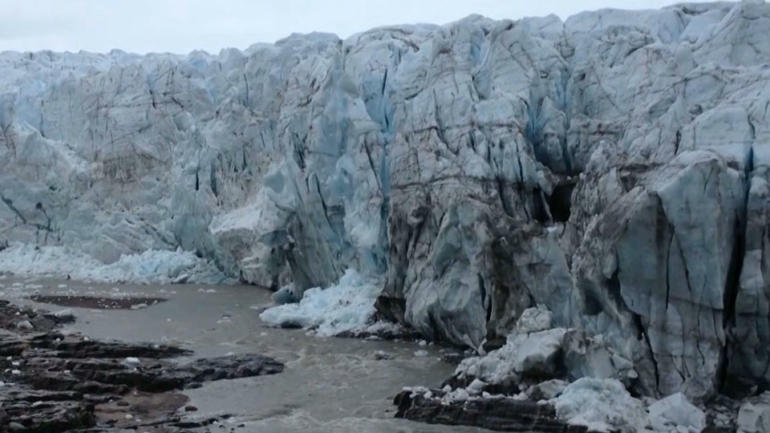Scientists are warning that Greenland’s ice sheet is melting so fast, it may have reached a tipping point.
The new study published in the Proceedings of the National Academy of Sciences adds to growing evidence that climate change experts have underestimated the effects of a warming planet.
CGTN’s Giles Gibson filed this report.
For years, scientists have been carefully measuring Greenland’s glaciers and watching them collapse before their eyes. A new study has found the most dramatic change in Greenland’s southwestern region, far from those ancient masses of ice.
Greenland’s ice sheet is more than 3,000 meters thick in some places. If it melts entirely, global sea levels could rise by seven meters. However, it’s not just Greenland, the world’s biggest island, that’s experiencing melting. It’s happening across the Arctic.
“I mean the ice sheet is huge, thousands of miles long and they see melting or loss of ice on the surface, around the edges, in the glaciers, warmer water in the fjords, so the picture keeps changing because it gets warmer and warmer,” Rafe Pomerance, Chairman of Arctic 21 said.
After 2013, scientists found the rate of melting ice in Greenland had slowed down for about a year-and-a-half. However, NASA satellites that recorded the data stopped working in 2016.
The United Nations said keeping global warming under 1.5 degrees Celsius, and therefore slowing down the melting, will require “unprecedented changes in all aspects of society.” Climate change policy experts have insisted individual studies do make a difference.
“It’s all incremental, each piece builds and builds and builds, it builds public concern, public understanding,” Pomerance said. “So no one study is going to break the dam. We’ve had plenty of studies that should’ve broken the dam, we’ve had observations that should’ve broken the dam, but they haven’t. So we have to continue to build it.”
That momentum, though, is flowing in the opposite direction to the U.S. government’s environmental policy. Scientists are increasingly issuing urgent warnings about the environment, and the Trump administration is moving toward exiting the Paris Agreement. The world’s biggest economy, though, cannot formally withdraw until November 2020.
 CGTN America
CGTN America
